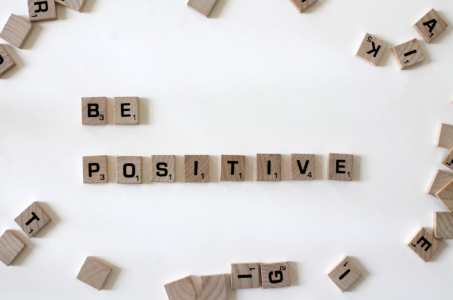The surprising connection between your thoughts and your well-being
- Replies 0
There are moments when life feels like it’s gently reminding you that time is passing, though not always in the ways you expect.
Sometimes it’s a doctor’s offhand comment, sometimes it’s the faint edge of fatigue that didn’t used to be there, and sometimes it’s just the quiet sense that the world thinks you’ve begun to slow down.
But what if that belief—that aging is decline—is the very thing that makes you feel old? Perhaps the secret to staying young has less to do with time itself and more to do with the story you tell yourself about it.
When writer Ashley Merryman visited a new ear, nose, and throat doctor about her worsening hearing and dizziness, she left not with answers but with a prescription for antihistamines and an expensive bill.
The physician had brushed off her concerns, saying she was simply “getting old” and that her hearing would only decline from here.
That moment—one so many have quietly endured—became a reminder of how deeply ageism can slip into medicine and into our own beliefs about what’s possible as we grow older. But Merryman refused to accept that narrative, and science now backs her up in full.
Studies show that people who hold negative views about aging are far more likely to experience health problems later in life.

Those who believe that forgetfulness or fatigue are “normal” parts of aging often neglect treatable issues, avoiding care that could vastly improve their well-being.
Research has even shown that pessimistic views on aging can shorten cellular lifespan, with American veterans who held such beliefs showing telomere shortening greater than that caused by combat stress or age itself.
In contrast, people with positive attitudes toward aging not only recover faster but also live, on average, 7.5 years longer.
Researchers are still uncovering why this mindset gap has such a dramatic impact, but one answer lies in behavior. People who assume decline is inevitable are less likely to eat well, exercise, or seek medical help when they should.
Also read: 19 superstitions that might actually have a scientific explanation
As Stanford University’s Alia Crum has found, believing a diagnosis defines your destiny can be more harmful than the condition itself.
In one of her experiments, participants told they carried a “genetic risk”—even falsely—performed worse in exercise tests and showed measurable changes in their physiology, proving that mindset can literally reshape the body’s response.
Crum’s later studies flipped this logic around: when patients were encouraged to interpret side effects as proof that medication was working, their discomfort lessened and adherence improved.
Her team also trained people with osteoarthritis to view activity as restorative rather than risky—reducing their pain and lowering surgical requests.
Also read: Discover the secret to better health that you have but haven’t been using enough!
These lessons highlight something quietly radical: your beliefs don’t just reflect your health; they participate in it.
Merryman herself took that insight to heart, deciding she didn’t have to accept her doctor’s dismissive opinion and instead found a new one who would actually listen.
Forget aging gracefully—Crum and Merryman suggest aging rebelliously. The goal isn’t denial but defiance of narratives that say vitality has an expiration date.
With every positive shift in how we see aging, we rewrite what it means to grow older, stronger, and more self-aware. The body may follow biology, but the mind writes the map.
Read next:

So how do you see aging—as a countdown or as an evolution? Have you ever caught yourself limiting what you believe your future health can be? Share your thoughts in the comments below and tell us what “aging rebelliously” means to you.
Sometimes it’s a doctor’s offhand comment, sometimes it’s the faint edge of fatigue that didn’t used to be there, and sometimes it’s just the quiet sense that the world thinks you’ve begun to slow down.
But what if that belief—that aging is decline—is the very thing that makes you feel old? Perhaps the secret to staying young has less to do with time itself and more to do with the story you tell yourself about it.
When writer Ashley Merryman visited a new ear, nose, and throat doctor about her worsening hearing and dizziness, she left not with answers but with a prescription for antihistamines and an expensive bill.
The physician had brushed off her concerns, saying she was simply “getting old” and that her hearing would only decline from here.
That moment—one so many have quietly endured—became a reminder of how deeply ageism can slip into medicine and into our own beliefs about what’s possible as we grow older. But Merryman refused to accept that narrative, and science now backs her up in full.
Studies show that people who hold negative views about aging are far more likely to experience health problems later in life.

The surprising connection between your thoughts and your well-being. Image source: Amanda Jones / Unsplash
Those who believe that forgetfulness or fatigue are “normal” parts of aging often neglect treatable issues, avoiding care that could vastly improve their well-being.
Research has even shown that pessimistic views on aging can shorten cellular lifespan, with American veterans who held such beliefs showing telomere shortening greater than that caused by combat stress or age itself.
In contrast, people with positive attitudes toward aging not only recover faster but also live, on average, 7.5 years longer.
Researchers are still uncovering why this mindset gap has such a dramatic impact, but one answer lies in behavior. People who assume decline is inevitable are less likely to eat well, exercise, or seek medical help when they should.
Also read: 19 superstitions that might actually have a scientific explanation
As Stanford University’s Alia Crum has found, believing a diagnosis defines your destiny can be more harmful than the condition itself.
In one of her experiments, participants told they carried a “genetic risk”—even falsely—performed worse in exercise tests and showed measurable changes in their physiology, proving that mindset can literally reshape the body’s response.
Crum’s later studies flipped this logic around: when patients were encouraged to interpret side effects as proof that medication was working, their discomfort lessened and adherence improved.
Her team also trained people with osteoarthritis to view activity as restorative rather than risky—reducing their pain and lowering surgical requests.
Also read: Discover the secret to better health that you have but haven’t been using enough!
These lessons highlight something quietly radical: your beliefs don’t just reflect your health; they participate in it.
Merryman herself took that insight to heart, deciding she didn’t have to accept her doctor’s dismissive opinion and instead found a new one who would actually listen.
Forget aging gracefully—Crum and Merryman suggest aging rebelliously. The goal isn’t denial but defiance of narratives that say vitality has an expiration date.
With every positive shift in how we see aging, we rewrite what it means to grow older, stronger, and more self-aware. The body may follow biology, but the mind writes the map.
Read next:
- Think young and turn back time
- Grandmother celebrates 101 years and reveals the simple habits behind her longevity and health
Key Takeaways
- The article explored how negative beliefs about aging can become self-fulfilling, shaping both physical health and emotional resilience over time.
- It revealed that people who view aging with optimism live longer, recover faster, and engage more actively with their health.
- Research by Alia Crum demonstrated how mindset directly influences physiological responses, proving that belief can alter biology.
- Ultimately, it was a reminder that aging well begins not with denial, but with the decision to challenge the quiet, destructive myth that getting older must mean getting weaker.






